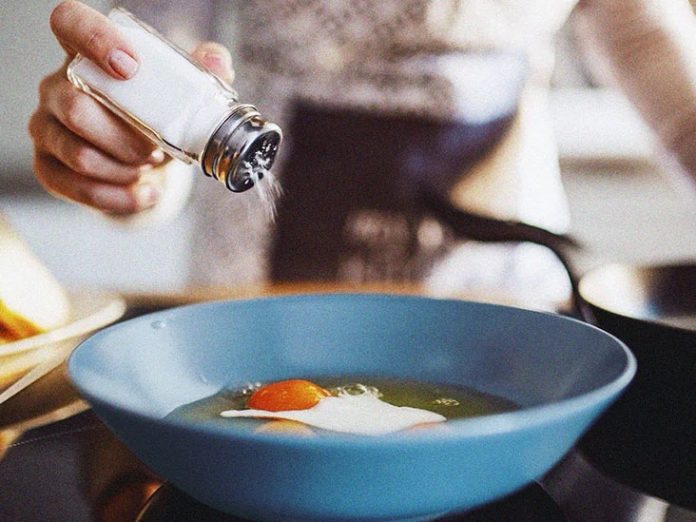It really annoys me when I hang around people who tell me they have sworn off sugar and white flour. It almost seems like the new “popular group” in high school. Another opportunity to feel bad about yourself. But you know what? Kudos to those who can switch off that behavior, but for the rest of us, “it’s a little more nuanced than that”, to quote “Crazy Ex-Girlfriend” opening theme song. Actually, it is very difficult to make a substantial diet change, and unless you have time to shop and cook every meal at home, at some point in time, you are going to eat out in a restaurant or buy processed food. When you do you might want to think about sodium.
It turns out that sodium, or salt, is the food industry’s dirty little secret for taste enhancement and cost savings in the production of food. Particularly in the snack food aisle. If consumers deconstructed a corn chip or a cheese doodle, they would realize it is essentially a puff of air coated in processed salt and dried cheese powder. Yuck. But when combined with a comedy show of music and jokes, in a commercial hosted by a recognizable cartoon character, in a package of screaming rainbow of colors. Well, we cannot resist, especially when it is coated in salt.
An average amount of sodium in a food order at a high end restaurant is way over the 2300 milligrams recommended for the amount of sodium per day. Spices, rubs, marinades and those cute little dribbles of sauce on the plate are where most of the sodium is hidden in the world of fine dining. Fast food restaurants, like McDonald’s has 1120 milligrams of sodium in a Big Mac and fries. People can eat more than one of those at a time, so you do the math. In these places, sodium adds flavor so that lesser quantity or quality main ingredients can be used to save money.
What is the latest science on cutting back sodium? If you have no family history of high blood pressure and cardiovascular disease or you are obese, your diet should be no more than the 2300 mg of sodium per day dietary guidelines recommendation. Recently, in 2014, a global study funded by the Bill and Melinda Gates Foundation, identified cultures all over the world who were studied by various researchers on the topic of sodium and diet. The results indicated that rates of high blood pressure and cardiovascular diseases are on the increase around the world. One can speculate that as food manufacturers have discovered global markets, previously healthy local populations are now experiencing American health issues of high blood pressure and cardiovascular diseases.
So what should you do? Here are a few suggestions:
1) If you have a family history of High Blood Pressure or Cardiovascular Disease, are African American, or over the age of 51 years, Diabetes or Chronic Kidney Disease The American Heart Association recommends your daily sodium intake to be 1500 milligrams per day. So read food labels on sodium content and pay attention to what you buy.
2) Know your personal health history! Check your blood pressure and if it is elevated go see your doctor to get treated. If you are overweight follow a good diet. Most physicians recommend the DASH diet which follows a sensible calorie diet rich in fruits and vegetables, whole grains, lean meats and poultry, beans, high fiber and low in fat.
3) Use roasted garlic or caramelized onions for flavor and fresh or dried herbs rather than salt
4) Keep a food record so that when you make a change you can see for yourself your progress
5) Don’t forget to exercise 150 minutes per week. Better yet an hour a day. It will help keep you strong, fit, your mind clear, kidneys working right, weight down and most of all helps keep your blood pressure normal.








